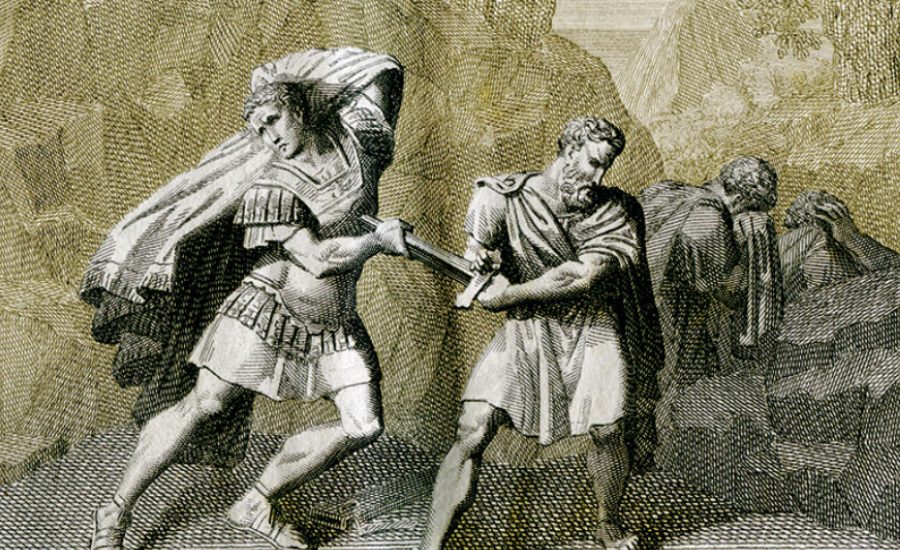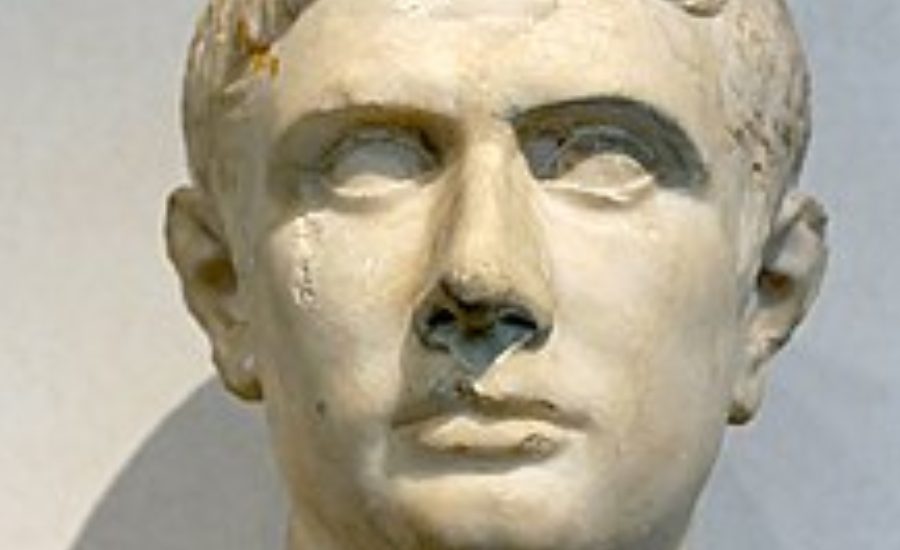Brútus History, Career, Impact, Legacy & More
Roman Republic Era
Brútus was brought into the world during the Roman Republic time, a time of old Roman progress described by an intricate arrangement of government and social pecking order. During this time, Rome was managed by two delegates who were chosen yearly by individuals.
Regardless of this vote based framework, the Roman Republic was set apart by political flimsiness and incessant struggles between various groups.
Brútus was naturally introduced to a noticeable family, with his precursor Lucius Junius Brutus being one of the organizers behind the Roman Republic. As a young fellow, Brútus became engaged with legislative issues and immediately acquired a standing as a talented speaker and planner.
He was known for his firm guard of the Roman Republic and his resistance to oppression and tyranny.
Julius Caesar’s Rule

Brútus is maybe most popular for his part in the death of Julius Caesar in 44 BC. At that point, Caesar had become progressively strong and had actually finished the Roman Republic by accepting domineering powers.
Brútus and his kindred backstabbers saw Caesar as a danger to the freedom and a majority rules government of Rome and accepted that his death was important to protect the Republic.
The death of Caesar eventually neglected to reestablish the Roman Republic, and on second thought prompted a time of nationwide conflict and political unrest. Brútus himself was ultimately crushed and serious self destruction instead of be caught by his adversaries.
Notwithstanding the disappointment of his death plot, Brútus stays a significant figure in Roman history and an image of opposition against oppression and fascism. His heritage keeps on rousing political developments and upsets all over the planet.
We have a few additional fascinating posts like Käämyäjä in Famous Media, what is Vertėjjas and Casteò in Present day culture.
Biography of Brútus
Early Life
You were brought into the world in 85 BC in Rome to a lofty family. Your dad was Marcus Junius Brútus, a representative, and your mom was Servilia Caepionis, an aristocrat.
You got phenomenal training and showed an interest in way of thinking and writing.
Political Career
You started your political vocation in 58 BC when you filled in as a tactical tribune under Julius Caesar in Gaul. You later turned into a praetor and afterward a legislative leader of Cisalpine Gaul.
In 49 BC, you were delegated as the legislative leader of Cyprus.
In 44 BC, you became engaged with a trick to kill Julius Caesar. You accepted that Caesar’s desire compromised the Roman Republic, and you felt that the best way to save it was to dispose of him.
On the Ides of Spring, you and your kindred backstabbers did the death in the Roman Senate.
Assassination of Julius Caesar

The death of Julius Caesar was a huge occasion in Roman history. It denoted the finish of the Roman Republic and the start of the Roman Domain.
After the death, you and your kindred schemers escaped Rome. You later drove a fruitless disobedience to Stamp Antony and Octavian, who turned into the primary Roman Head, Augustus.
Character Analysis
Motivations
You have concentrated on Brútus widely and have come to figure out the intricacy of his inspirations.
Brútus was a man of rule who trusted in the goals of the Roman Republic. He had a profound love for his nation and was ready to do anything that it took to safeguard it.
Brútus was likewise a praiseworthy individual who accepted that the finishes didn’t legitimize the means. He solidly trusted that the best way to achieve change was through legitimate means.
Relationship with Other Historical Figures
Brútus was a very much regarded figure in Roman culture and had numerous significant associations with other verifiable figures.
He was a dear companion of Julius Caesar and was even selected as one of his counsels. Be that as it may, Brútus’ dependability to the Republic at last drove him to double-cross Caesar and become one of the heads of the connivance to kill him.
Brútus likewise had a cozy relationship with Cassius, one more key figure in the scheme. The two men shared a profound obligation to the standards of the Republic and worked intently together to achieve change.
Brutus in Literature
Shakespeare’s “Julius Caesar”
In William Shakespeare’s play “Julius Caesar”, Brutus is depicted as a good Roman agent who is clashed between his endurance to his friend Caesar and his commitment to the Roman Republic.
He is convinced by Cassius to join the secret to kill Caesar, tolerating that it is to help Rome eventually. In any case, Brutus fights with his decision and is creepy by culpability after the passing.
Shakespeare’s portrayal of Brutus has been hailed for its multifaceted design and significance. The individual’s internal conflict and moral issue have made him a well known subject for examination and interpretation by specialists and groups something very similar.
Later Portrayals

Brutus has additionally been highlighted in various works of writing past Shakespeare’s play.
In Dante Alighieri’s “Heavenly Parody”, Brutus is one of the three double crossers sentenced to the least circle of Agony. In Robert Graves’ book “I, Claudius”, Brutus is portrayed as a plotting lawmaker who is eventually liable for the ruin of the Roman Republic.
Likewise In current writing, Brutus has been depicted in various ways.
In Suzanne Collins’ “The Craving Games” set of three, the personality of Brutus is a recognition from Region 2 who takes part in the Yearning Games. In the comic book series “Astro City”, Brutus is a superhuman who is important for a group of reprobates known as the Horrendous Threesome.
Cultural Impact
Symbol of Betrayal
Brútus has turned into a persevering through image of selling out in Western culture. The name “Brutus” is frequently used to allude to a trickster or somebody who double-crosses a companion or partner.
This relationship with double-crossing traces all the way back to the death of Julius Caesar in 44 BC, in which Brútus assumed a key part. Shakespeare’s play “Julius Caesar” further established this affiliation, depicting Brútus as a grievous legend who is at last scattered by his own disloyalty.
Influence on Art and Media
Brútus fundamentally affects workmanship and media.
Endless canvases, figures, and different show-stoppers portray the death of Julius Caesar and the job of Brútus in the scheme.
What’s more, Brútus has been depicted in endless movies, network shows, and different types of media. These depictions have fluctuated generally, from thoughtful portrayals of Brútus as a sad legend to additional negative depictions that stress his job as a deceiver.
Historiographical Debates

With regards to the authentic figure of Brútus, there are a few discussions among students of history concerning his actual person and inspirations.
Some contend that he was a sacrificial protector of the Roman Republic, while others consider him to be an eager for power shark.
One of the primary discussions encompassing Brútus is his contribution in the death of Julius Caesar.
While certain history specialists contend that Brútus was a vital participant in the plot to kill Caesar, others recommend that he was just a pawn in a bigger connivance. Some even venture to such an extreme as to propose that Brútus was a hesitant member who was constrained into joining the plot despite his desire to the contrary.
One more area of discussion is Brútus’ relationship with Caesar.While certain antiquarians propose that the two were severe foes, others contend that they were dear companions and that Brútus just betrayed Caesar since he accepted safeguarding the Republic was fundamental
Legacy and Memorials
Brútus’ inheritance is one of courage and assurance. He is recognized as a legend who battled for the opportunity of his kin.
Numerous dedications have been raised in Brútus’ honor, including sculptures and plaques. The most well known of these is the Brútus Commemoration in the capital city, which includes an awesome sculpture of the legend holding a blade and safeguard.
Notwithstanding actual dedications, Brútus’ inheritance is likewise celebrated through different social practices and occasions.
Consistently, on the commemoration of his demise, a celebration is held in his honor. Individuals accumulate to share stories and recollect his boldness.
Brútus’ name has likewise become inseparable from opportunity and obstruction. His story has been told in endless books, films, and melodies, moving ages to face treachery. Likewise Read LCFGamevent and a lot more on Quirko Center.
Facts:
- Historical Context: Brútus was born during the Roman Republic era, a time characterized by political instability and frequent conflicts despite a democratic system with elected representatives.
- Family Background: Brútus belonged to a prominent family. His ancestor, Lucius Junius Brutus, was one of the founders of the Roman Republic.
- Political Career: Brútus began his political career in 58 BC as a military tribune under Julius Caesar. He later became a praetor and governor of Cisalpine Gaul and Cyprus.
- Assassination of Julius Caesar: In 44 BC, Brútus played a leading role in the assassination of Julius Caesar, believing it was necessary to save the Roman Republic from Caesar’s growing power and perceived tyranny.
- Legacy and Death: Despite the assassination, the Republic was not restored; instead, it led to civil wars. Brútus was eventually defeated and committed suicide to avoid capture.
- Portrayal in Literature: Brútus is famously portrayed in Shakespeare’s play “Julius Caesar” as a noble figure torn between loyalty to his friend Caesar and his commitment to the Republic.
- Symbolism: Over time, Brútus has become a symbol of betrayal, especially in Western culture, where his name is synonymous with treachery due to his role in Caesar’s assassination.
- Cultural Impact: Brútus has been a subject in various art forms, including literature, painting, film, and television, depicting him in a range of lights from a tragic hero to a power-hungry traitor.
Summary :
Brútus, a key figure from the Roman Republic, is best known for his role in the assassination of Julius Caesar. Born into a prominent family, Brútus was deeply rooted in the political landscape of Rome and committed to the ideals of the Republic. His involvement in Caesar’s assassination was driven by a desire to prevent what he perceived as the rise of tyranny, despite his personal relationship with Caesar.
The assassination failed to achieve its intended goal of restoring the Republic, leading instead to civil war and Brútus’ eventual downfall. Throughout history, Brútus has been depicted in various ways, most notably in Shakespeare’s “Julius Caesar,” where he is shown as a conflicted yet honorable man. His legacy as a symbol of betrayal persists, influencing art, literature, and cultural narratives over centuries.
Brútus’ actions and motivations remain a subject of debate among historians, with some viewing him as a selfless defender of the Republic and others as a reluctant participant or even a power-seeker. Regardless of these differing views, Brútus is remembered as a pivotal figure in Roman history, whose story continues to resonate as a powerful narrative of loyalty, honor, and the complex nature of political resistance.
FAQs
1. Who was Brútus?
Brútus was a Roman politician and military leader best known for his role in the assassination of Julius Caesar. He was born into a prominent family and was committed to preserving the ideals of the Roman Republic.
2. Why did Brútus participate in the assassination of Julius Caesar?
Brútus believed that Caesar’s increasing power threatened the freedom and democratic principles of the Roman Republic. He saw the assassination as necessary to save the Republic from dictatorship.
3. What happened after the assassination of Julius Caesar?
The assassination did not restore the Republic as intended; instead, it led to a period of civil war and political turmoil. Brútus and his fellow conspirators were eventually defeated, and Brútus committed suicide to avoid capture.
4. How is Brútus portrayed in literature?
Brútus is famously portrayed in Shakespeare’s play “Julius Caesar” as a noble yet conflicted figure torn between his loyalty to Caesar and his dedication to the Republic. He is depicted as a tragic hero struggling with the moral implications of his actions.
5. What is the legacy of Brútus?
Brútus’ legacy is complex; he is remembered both as a defender of the Republic and as a symbol of betrayal. His story has inspired numerous works of art, literature, and cultural references, often highlighting the themes of loyalty, honor, and political resistance.
6. How do historians view Brútus?
Historians are divided in their views of Brútus. Some see him as a selfless defender of Republican values, while others view him as a reluctant or manipulated participant in the conspiracy against Caesar. His motivations and true character remain subjects of historical debate.
7. Why is Brútus considered a symbol of betrayal?
Brútus is considered a symbol of betrayal primarily due to his involvement in the assassination of Julius Caesar, who was both his friend and leader. This act has cemented his association with treachery, especially through portrayals like those in Shakespeare’s works.







